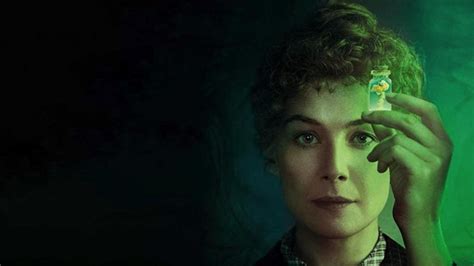Once upon a time, the biopic was one of the film industry’s staples, a guaranteed medium for giving the movie-going public drama, human greatness, and history in one package. Some films were faithful to the life they claimed to depict (Richard Attenborough’s Young Winston, for one), but more often than not they tended to be inaccurate beyond the surface details. But let’s admit it: sometimes the inaccuracies provided the charm and tension the bare facts might have lacked. That’s why they were popular.
I would have said that such films have ceased to interest Hollywood (or anywhere films are made), but the rise of the streaming-for-television movie via services such as Amazon Prime and Netflix has pumped new life into the moribund genre. It still has its old problems with the liberal sprinkling of falsehoods here and there, a practice now guaranteed by the rise of the Woke (Self-Made is a good example), but it is possible, even against the intersectional tide, to produce a story of reasonable fidelity if the determination to do so exists.
Radioactive, the story of Madame Marie Curie, currently available on Amazon Prime, proves a fairly truthful portrayal. I’ll admit I had my doubts. Well, why not? Take the tagline: “Pioneer, Genius, Rebel.” That “Rebel” provides the kicker: Feminism on the march! And if you think you know what’s coming, you won’t be completely disappointed. Radiocative’s Curie is nothing if not rude to most men; she has an outright conniption fit when Pierre, her husband, goes to Stockholm without her to receive the Nobel Prize they were jointly awarded; she is cavalier to lesser women about the existence of anything science cannot prove; she’s positive she’s denied funding because of her sex.
This is standard stuff nowadays, and much of it false, but happily there’s more than enough about Curie in the film that’s historical to help one forget what’s not. It is certainly true that Curie felt her (and her husband’s) work was under-funded but absolutely not because she was a woman. Far from getting angry because he traveled to receive the Nobel Prize, she actually accompanied him to Stockholm although he had to insist that she receive co-credit for the discovery of radium and polonium. The discovery, a matter of hard, persistent work, was monumental, and Radioactive does not cloud her or Pierre’s role in the process.
Neither does it ignore the mutual love that developed between the two scientists. They collaborate: in work, in rearing a family, and in their recreations—cycling, a pastime the pair really did enjoy—and swimming in the nude (well, who knows if they did that). As the film shows, they resisted the temptation to patent their discoveries and may have been somewhat naïve, perhaps understandably, about the dangerous effect of the new elements and their possible uses. When Pierre is run over by a horse-drawn wagon one night, Marie is grief-stricken, a point of biographical fact.
It’s difficult to say how well Rosamund Pike plays Curie. Her version of the great woman presents her with a colossal chip on her shoulder and a near paranoiac attitude about protecting her work—hence, her initial refusal to work with Pierre (not quite factual). Did she really feel that way? All I can say is, Radioactive’s writers put the disposition in the script, and Pike acts the part convincingly. Overall, she invests Curie with a human dimension sufficient to make the character more than an encyclopedia entry. Sam Riley is a good, loving, patient Pierre who truly believes in his wife and what they’re doing together.
The technique the director uses in an attempt to make the film stand out is one of cutting away from the strictly biographical to highlight the historical uses of radioactivity—cancer treatment, Hiroshima, and Chernobyl—with varying degrees of success. I can’t help feeling that the better strategy would have been to stick with Curie’s life and let the effects take care of themselves. Still, Radioactive is a worthy evening’s entertainment even with its lapses, and it might make the viewer delve into the life of its subject—maybe by reading a book.














